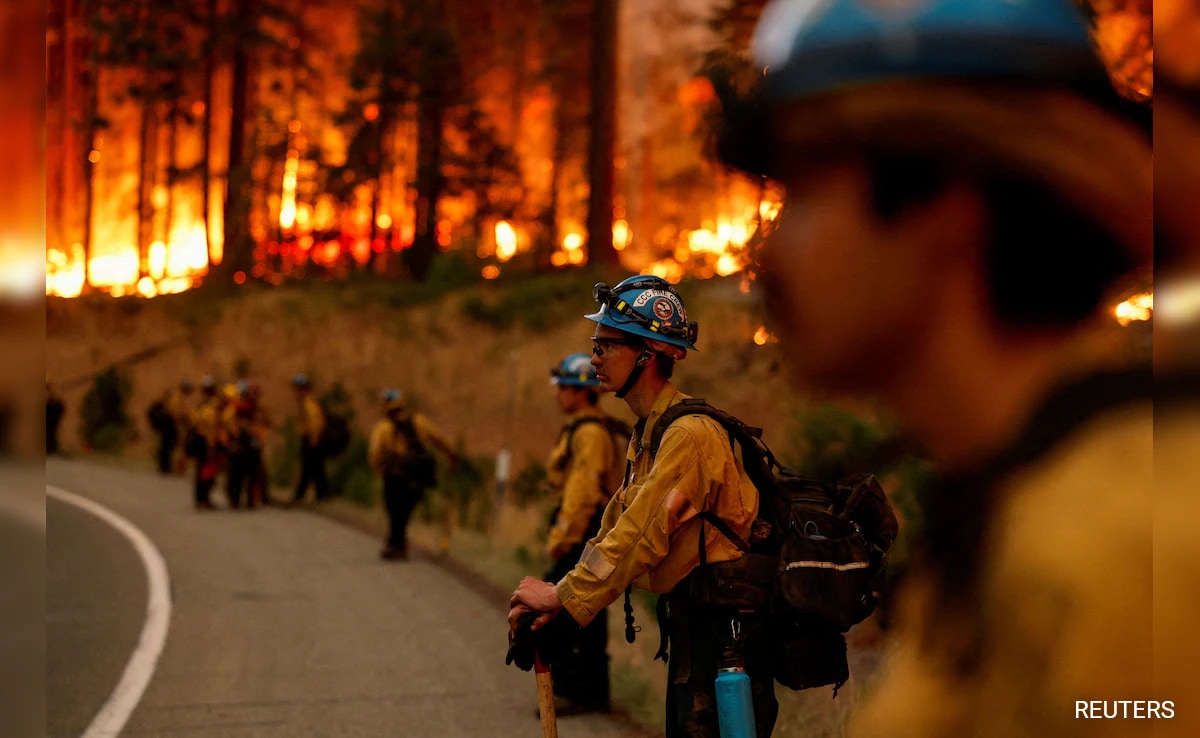The fire destroyed at least 114 structures in four counties.
Thousands of firefighters battling a massive northern California wildfire were working in milder temperatures and higher humidity Monday, but the blaze that has destroyed more than 100 structures since it began five days ago continues to grow.
The Park Fire, which officials said was started by a man who pushed a flaming car into a gully, grew slightly overnight to 368,000 acres (148,924 hectares). The sixth largest wildfire in state history is rolling through a remote area some 180 miles (290 km) northeast of San Francisco, according to Cal Fire.
Crews were “still in for quite a firefight today, just because (of) the sheer magnitude and the sheer size of the fire,” said Dan Collins, a Cal Fire captain, noting that temperatures were to be in the high 80s with 25% percent humidity during the day.
Some 4,800 firefighters were building and strengthening control lines on Monday morning hoping to increase the 12% they had contained. The more favorable weather conditions compared to those they faced over the past several days were helping, Collins added.
Butte County District Attorney Mike Ramsey said in a statement that the accused arson suspect, Ronnie Dean Stout II, was jailed without bond on a Butte County judge’s warrant after he was identified as the person seen pushing a flaming car into a gully on Wednesday afternoon.
The fire rapidly grew, doubling in size from Friday to Sunday and destroying at least 114 structures in four counties.
The fire has also caused officials to issue evacuation warnings and orders to several communities, including Paradise, the town that was devastated by the 2018 Camp Fire, the deadliest in the state’s history.
Cal Fire also reported on Monday that 33% of the SQF Lightning Complex was contained. That fire has raged for the past two weeks some 350 miles (563 km) to the south of the Park Fire. Part of that complex, dubbed the Borel Fire, swept through Havilah, torching much of that historic gold mining town on Friday.
The Park and Borel fires were just two of the 102 large active fires burning nationwide. A total of 25 had forced evacuations as of Monday morning, according to the National Interagency Fire Center.
A cold front in the Pacific Northwest, where many of the fires burn, was forecast to bring rain and thunderstorms to the region on Monday. However, the system will carry strong wind gusts of up to 50 miles (80 km) per hour that could hamper firefighting efforts, the center said in a statement.
(Except for the headline, this story has not been edited by NDTV staff and is published from a syndicated feed.)
Waiting for response to load…
















